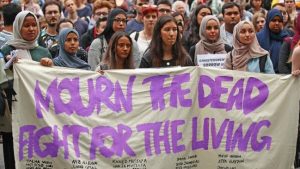Home » Commentary » Opinion » Debating immigration can’t be dismissed as hate speech
· The Daily Telegraph


The response to the Christchurch atrocity has been everything that we want and don’t want — or need — it to be.
The bipartisan condemnation of terrorism of all kinds led by the Prime Minister and Opposition Leader has affirmed Australia’s commitment to basic liberal democratic principles: in this country, we resolve our political difference peacefully through rational debate and at the ballot box, not by politically-inspired violence.
The support that has been displayed across the community for the Muslim victims of terror has also affirmed the nation’s commitment to the principles of respect for the individual and tolerance towards people of all faiths and ethnicities within Australian society.
Unfortunately, there has also been no shortage of efforts across the political spectrum to politicise the tragedy and score partisan points.
On the Right, Senator Fraser Anning in his putrid pursuit of re-election has obscenely blamed the dead to justify banning Muslim immigration.
On the Left, there has also been a concerted attempt led by the Greens and GetUp! to shift the blame by asserting — with no real evidence — that the terrorist attack was inspired by the so-called “hate speech” spoken on immigration-related subjects by Coalition politicians.
The argument is that root cause of the terrorist attack is the “hatred” that has allegedly been “normalised” by the “inflammatory language on race” of Scott Morrison, Peter Dutton, and Tony Abbott — despite none of these politicians being mentioned in the terrorist’s online manifesto.
All reasonable people oppose speech that genuinely incites racial hatred, and support laws that make incitement, to racially-motivated and all other forms of violence, illegal.
But it is a monstrous absurdity to blame the cesspit of internet white supremacist fanaticism on the legitimate statements that mainstream politicians have made about immigration — and claim they have “blood on their hands”.
Such politicking not only needlessly divides us and undermines the spirit of national unity in the face of terrorism, it also trivialises the real motivations of those who believe killing innocent people is politically justified, and offers no sound guide to how the authorities should respond to such evil thoughts, words, and deeds. The attempt being made to silence debate about immigration by linking it to Christchurch is also likely to prove counter-productive.
Making immigration a taboo subject beyond the bounds of respectable public discussion would not just feed far right paranoia about political conspiracies to deny people a say, it would also create a political void the Senator Annings and their ilk will gleefully fill.
What such a response would also ignore is the political realities of immigration policymaking. Concerns about immigration are anything but fringe or worse views, and do not reflect the racist sentiments of the White Australia policy era that are alleged to still prevail in the hearts and minds of most Australians.
Since World War II, Australia has had a long and proud history of accepting millions of migrants from diverse backgrounds.
We have successfully created one of the most tolerant and harmonious multiracial societies in the world — an achievement that would not have been possible if Australia was still the kind of racist country it was at the time of Federation.
However, mainstream public opinion has reasonable and understandable concerns not only about the economic impact of immigration on public infrastructure, but also about the cultural implications of immigration with respect to the integration of migrants and maintenance of social cohesion and community safety.
The later concerns arise, of course, in the context of international and domestic Islamist terrorism. We might wish it was otherwise, but discouraging discussion of such issues by claiming such concerns are due to irrational ‘Islamophobic’ prejudices will not make them go away.
Over the past 20 years, public support for a large, legal, and non-discriminatory immigration program, and a generous humanitarian refugee program, has been predicated on the maintenance of strong border protection policies.
The political lesson — as even Malcolm Turnbull understood — was that immigration policy could not proceed ahead of public opinion; since in a democracy it is ultimately the people who determine who comes to this country and the circumstances in which they come.
Shutting down debate is not the way to build public confidence in the immigration program.
Mainstream politicians must address what are mainstream public concerns — not cede this ground to the genuine peddlers of genuine race hate and terror.
Dr Jeremy Sammut is a senior research fellow and director of the Culture, Prosperity and Civil Society Program at the Centre for Independent Studies.
Debating immigration can’t be dismissed as hate speech